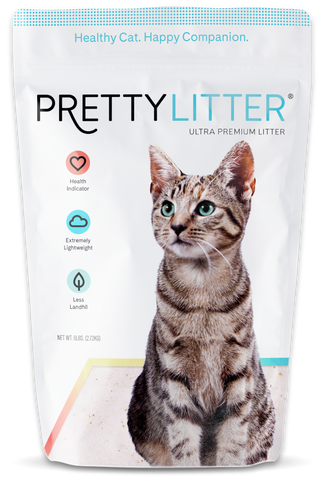September 27, 2018 |5 min read
Cats & Kidney Disease

Written by

It’s every pet parent’s worst nightmare.
One day Fluffy is fine. And the next day she is very much not.
You rush her to the vet, because that’s the smart thing to do when sudden or disturbing changes happen to our babies, and you hear the phrase “kidney disease” for the first time.
Now you want answers.
What is kidney disease? How did this happen to my fur baby? And how worried should I be?
Who Gets Kidney Disease?
Kidney disease affects over one-third of older cats. For some cats, kidney disease is a chronic condition that develops and persists over time. For others, acute kidney injury can happen quickly due to an internal health problem or physical trauma.
There are several feline health problems that can develop into kidney disease, including:
- Kidney infections
- Kidney stones
- Kidney stone blockages
- Feline infectious peritonitis (FIP)
- Cancer
- Amyloidosis (a genetic problem common in Abyssinian, Siamese, Oriental breeds)
- Polycystic kidney disease (a genetic disease common in Persian cats)
Many signs of kidney disease, such as blood in the urine and abnormal acidity, can be detected by PrettyLitter. If you’re using PrettyLitter, keep an eye out for any red or orange spots in your cat’s litter box.
Signs & Symptoms

If your feline friend is getting up age, be aware of the signs and symptoms of kidney disease and renal failure – just in case. Kidney disease affects the kidney’s ability to perform super important functions like eliminating protein waste, balancing body water, salts and acids, and producing safe urine.
When these processes stop happening as they should, Fluffy may start showing symptoms of kidney disease, including:
- Drinking more water
- Urinating more frequently
- Decreased appetite
- Vomiting
- Weight Loss
Chronic Kidney Disease
Chronic kidney disease occurs when the kidney function declines slowly over time. When this happens, your furry friend may not show any immediate symptoms.
However, when caught early, kidney disease can be treated. Keep an eye out for any of the symptoms above. Early chronic kidney disease will present itself with increased thirst and urination, which can be difficult to recognize, especially if your kitty shares a water bowl or litter box with others.
In that case, check for larger than normal urine deposits. Also, if you’re a member of the PrettyLitter family, check for red or orange colors in the litter box.
You may also notice your fur baby is sleeping more or appearing a little less spry than usual, just like we humans do when we don’t feel well.
Cat Litter That Prioritizes Their
Health & Your Happiness.
to get your first bag for only $14.99
Acute Kidney Disease
Acute kidney disease is a sudden and severe illness or injury to the kidneys. In this case, you will see immediate changes to your kitty that include not producing any urine at all. This can be an extremely dangerous situation and warrants rushing Fluffy to the vet straight away.
An injury to the kidney could be caused by:
- Cancer (although, thankfully, kidney cancer is rare in cats)
- Toxins from medicine or even certain plants
- Obstruction due to a kidney stone

Signs of Kidney Failure In Cats
Although different from kidney disease, kidney failure presents with the same symptoms as chronic or acute kidney disease. This is why paying attention to your kitty’s drinking and, yes, even urinating habits, is crucial to the health of your feline friend.
Treatment of Kidney Disease

Luckily for you and Fluffy, early detection and treatment of kidney disease can lead to a longer, happier, healthier life. Treating kidney disease of any sort is going to include making sure that your furry friend drinks plenty of water and takes any medications prescribed by the vet.
If you have a finicky drinker, view some ideas to help her drink up. You may need to change her diet to a more kidney-friendly one, as well.
Always follow your trusted vet for information when it comes to kidney disease risks, treatments, and tests for your unique cat. Every cat responds differently to illnesses and treatments, so be sure to ask a veterinarian if you have any questions how to help your kitty.
Has your feline friend had a run in with kidney disease? Share your experience in the comments to help out our community.
----
Don't forget to follow us on Instagram: @prettylittercats
----
Delivered straight to your front door, every month. We’ll even pay your shipping.
For a limited time only, get 20% off your first PrettyLitter order. Enter code “LOVE20” at checkout. Redeem Now!








